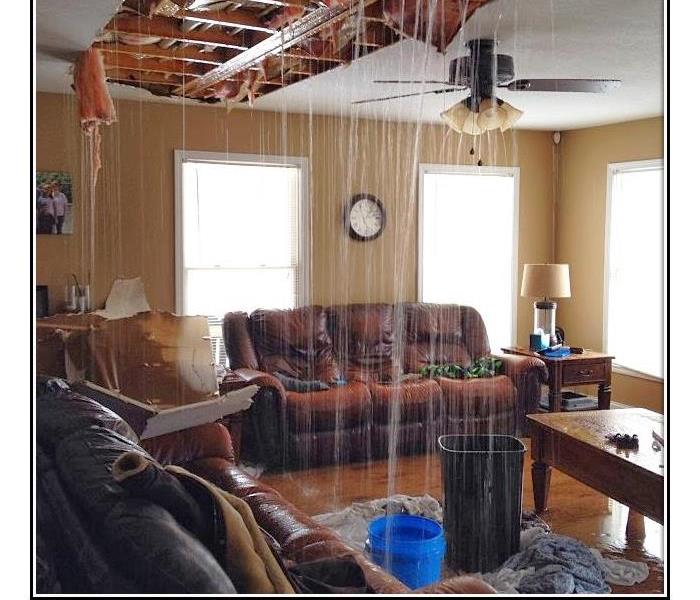Avoid these 3 Things When Flooding Occurs
2/4/2019 (Permalink)
Avoid These Three Things
What you don't do after a flood can be as critical for your safety as the actions you take. It is important to remove flood water to limit water damage, but you should also avoid doing these three things after a flood.
- Risk Exposure to Tainted Water
Standing water resulting from a flood is considered Category 3, or black water. It may contain contaminants such as chemicals, heavy metals, microbes, or solid waste. Keep unprotected skin from making contact with this infected water, and do not allow humans or animals to drink it.
If you attempt to mitigate damage in a flooded home, be sure to wear personal protective equipment, such as waterproof boots, hip waders, and heavy work gloves. If mold may be present, you should also wear a respirator.
2. Turn the Electricity Off or On
You may risk electrocution if you attempt to cross flood water to shut off a circuit breaker. There is no guarantee that water-damaged electrical components will function normally. Furthermore, neighbors may be running a generator improperly and back-feeding electricity into the grid.
A utility company technician or a licensed electrician can disconnect the electrical meter to ensure that there is no electrocution risk. You should also exercise caution when dealing with flood-damaged electronics, which are likely to short-circuit.
3. Delay Cleanup
The longer water is left standing or moisture lingers, the more likely mold growth will appear. Mold can begin to grow in a flooded home in 24 to 72 hours.
Avoid unprotected exposure to flood water, the risk of electrocution, and the dangers of secondary damage. The best way to handle flood damage is to hire water damage mitigation specialists to clean, disinfect, and to dry the flooded portion of your residence
- Call SERVPRO of Lake Charles @ 337-478-1133.





 24/7 Emergency Service
24/7 Emergency Service
